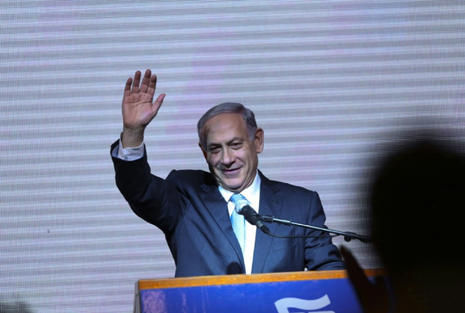Citing “current and former officials,” the paper said the “spying operation was part of a broader campaign by Israeli Prime Minister Benjamin Netanyahu’s government to penetrate the negotiations and then help build a case against the emerging terms of the deal.”
The Journal, in its Tuesday edition, reported the “espionage” did not concern the White House “as much as Israel’s sharing of inside information with U.S. lawmakers and others to drain support” for a possible deal with Iran to rein in Tehran’s nuclear program in exchange for easing of international sanctions.
The White House learned of the operation, the paper reported, when U.S. intelligence agencies “intercepted communications among Israeli officials that carried details the U.S. believed could have come only from access to the confidential talks, officials briefed on the matter said.”
Israel denied the charges, according to the Journal, which quoted a “senior official” in Netanyahu’s office calling the allegations “utterly false.”
But the Journal said its story was based on interviews with “more than a dozen” officials, including Israeli diplomats, intelligence officials and lawmakers.
Relations between the administration of President Obama and the government of Israel have become openly hostile since Netanyahu accepted an invitation from House Speaker John Boehner (R-Ohio) to address the U.S. Congress earlier this month.
The chill deepened during Netanyahu’s come-from-behind election victory last week. Just before the vote — with polls showing Netanyahu’s Likud party trailing — Netanyahu reached out to his right-wing base by appearing to reject the possibility of a Palestinian state. On election day, he then appealed to his backers to cast ballots to counter “droves” of Arab Israeli voters who likely supported his challenger.
Netanyahu later tried to massage his stance on the the so-called two-state solution — the cornerstone of peace efforts led by Washington — by saying he could support the idea if the region’s security situation improved in the future. He also sought to calm anger among Israel’s Arab population. But a prominent Arab-Israeli politicians, Ahmed Tibi, said Tuesday that many rejected Netanyahu’s outreach as “not an honest apology.”
If the Journal’s story is accurate, there were plenty of other reasons for the tension as well.
It quoted a “senior U.S. official briefed on the matter,” saying that it is “one thing for the U.S. and Israel to spy on each other. It is another thing for Israel to steal U.S. secrets and play them back to U.S. legislators to undermine U.S. diplomacy.”
On Monday, the White House chief of staff, Denis McDonough, reinforced the predictions that the Obama administration could be making recalculations in its dealings with Netanyahu.
“We cannot simply pretend that these comments were never made,” McDonough said.
In a speech to J Street, a Washington-based Israel advocacy group that is critical of Netanyahu, McDonough said Israel faced “total isolation” from the international community if it refuses to consider ending an “occupation that has lasted more than 50 years” in Palestinian lands.
Talks over Iran’s nuclear program are scheduled to resume later this week in Switzerland in a final push to reach a general framework before a self-imposed March 31 deadline.
Details of the possible deal have not been made public, but a chief aim seeks to limit and closely monitor Iran’s uranium enrichment capacities. The West and its allies worry that Iran could one day upgrade its production of nuclear fuel to make material for an atomic weapon. Iran insists it only seeks reactors for energy production and isotopes for medical applications.
More about:
















































